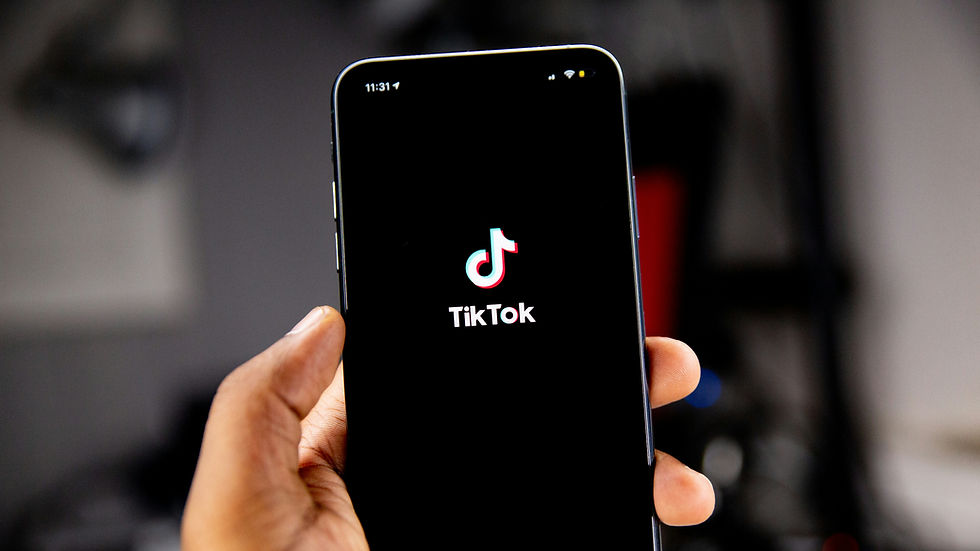AI Transforms Call Centres, Human Expertise Remains Key
- tech360.tv

- Sep 8, 2025
- 3 min read
Artificial intelligence is reshaping the call centre industry, enabling agents to provide more efficient customer service by automating routine tasks. This integration, however, highlights the continued need for human expertise in complex scenarios.

Armen Kirakosian, a 29-year-old from Athens, Greece, who works for TTEC, recalls the frustrations of his first call centre job nearly 10 years ago. He no longer manually writes notes or navigates countless menus, thanks to AI.
Mr. Kirakosian often has full customer profiles displayed before a call begins and may know the problem before speaking. He stated, "A.I. has taken (the) robot out of us."
Millions of people globally work in call centres, answering billions of annual inquiries on topics from broken phones to shoe orders. TTEC provides third-party customer service lines in 22 countries for companies needing additional capacity or outsourcing operations.
Customer service work can be unrewarding, with roughly half of agents leaving within a year due to stress and monotonous tasks, according to McKinsey. Much of the work involves "break/fix" issues, where customers expect problems to be resolved.

AI agents have already assumed more routine call centre tasks, leading to some job losses and varied forecasts for future employment. Predictions range from modest single-percentage point declines to as many as half of all call centre jobs disappearing in the next decade.
Despite dire predictions, a substantial decline is unlikely as the industry will still require human agents, perhaps with enhanced training, for increasingly difficult customer service issues. Some finance companies have experimented extensively with AI for customer support.
Klarna, a Swedish buy now, pay later organisation, replaced 700 of its approximately 3,000 customer service agents with chatbots and AI in 2024. While the company saved money, it identified a continued need for skilled human agents in specific circumstances, such as complicated identity theft issues.
Earlier this year, Klarna hired seven internal freelancers to handle these complex problems. Additionally, Klarna hired a handful of customer service employees back to the firm, acknowledging there were certain issues that AI couldn’t handle as well as a real person, like identity theft. Gadi Shamia of Replicant, an AI-software company, stated in an interview with McKinsey, "Our vision of an AI-first contact centre...is quickly becoming a reality."
The customer experience, though improved, remains imperfect. Initial service calls have long used interactive voice response (IVR) systems, which prompt customers to "press one for sales" or similar options.
Updates in the 2010s allowed customers to use simple voice commands, but impatience often leads them to "zero out," a term for pressing the zero button to reach a human. This frequently results in transfers and wait times as customers are rerouted.
Aware of public frustration with IVR, Democratic Senator Ruben Gallego of Arizona and Republican Jim Justice of West Virginia introduced the "Keep Call Centres in America Act." This act would mandate clear ways to reach a human agent and offer incentives for companies maintaining call centre jobs in the U.S.
Companies are developing telephone systems that broadly interpret customer requests and predict the correct department without menu navigation. OpenAI, maker of ChatGPT, is launching its "ChatGPT Agent" service, capable of understanding complex phrases like "I need to find a hotel for a wedding next year, please give me options for clothing and gifts."
Bank of America has successfully integrated such features into "Erica," its chatbot launched in 2018. If Erica cannot fulfil a request, it directly transfers the customer to the appropriate department.
Erica is now predictive and analytical, able to recognise patterns like repeated low balances, suggesting budgeting assistance, or multiple subscriptions to the same service. Bank of America reported this month that Erica has been used 3 billion times since its creation and is managing a growing volume of customer service requests.
James Bednar, vice president of product and innovation at TTEC, believes these tools could eliminate IVR entirely, ending the need for customers to "zero out." Mr. Bednar said, "We’re getting to the point where AI will get you to the right person for your problem without you having to route through those menus."
AI automates routine tasks, improving efficiency in call centres.
Human agents remain crucial for complex customer service issues.
Companies like Klarna have integrated AI, but still require human intervention for specific problems.
Source: AP NEWS


